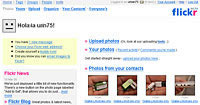 Research carried out on by Infosecurity Europe has revealed that 92% of people were willing to freely dish out all the personal information needed to steal their identity in exchange for the chance to win a theatre ticket.
Research carried out on by Infosecurity Europe has revealed that 92% of people were willing to freely dish out all the personal information needed to steal their identity in exchange for the chance to win a theatre ticket.
The study was conduced on the streets of London of as part of a survey into identity theft.
The researchers asked passers-by questions about their theatre going habits, telling them that by taking part in the survey they would be entered into a draw for theatre ticket vouchers worth £20.
In a cunning piece of mind-mending double-think deception, the pedestrians were asked seemingly innocent questions about their attitudes to going to the theatre, sneakily interspersed with questions to find out the details needed to steal their identities, such as date of birth and mothers maiden name.
The survey of 200 people on High streets across London was designed to act as a “wake up call” to highlight how easy it is for fraudsters to use social engineering to carry out identity theft.
By revealing how easily people can be duped into giving out personal information, it is hoped that the experiment will raise awareness of the need to be very careful about the information people give to complete strangers, either face-to-face, by post or online.
Researchers started off asking people their names – a reasonable enough question if someone is potentially going to send you freebie vouchers – and every person surveyed gave their names.
Next, the researchers dipped into their evil bags’o’deception and devised a simple yet effective means of finding out personal information.
People were asked a series of questions about their views on the theatre in London, with researchers asking if they knew how actors came up with their stage name.
 When they were told that it was a combination of their pets name and mothers maiden name, they were asked what they thought their stage name would be. Like a bunch of chumps, ninety four percent (94%) of respondees then blabbered out their mother’s maiden name and pet’s name.
When they were told that it was a combination of their pets name and mothers maiden name, they were asked what they thought their stage name would be. Like a bunch of chumps, ninety four percent (94%) of respondees then blabbered out their mother’s maiden name and pet’s name.
Next up, researchers were tasked with finding out the address and post code of their ‘victims’.
And, once again, they were like putty in their evil, plotting hands.
Researchers simply asked for people’s address details so that vouchers could be mailed to them if they won. And like sheep to the slaughter, 98% of those asked obediently barked out their full address and post code.
Next up, the researchers managed to find out the name of their interviewee’s first school by asking, “Did you get involved in acting in plays at school?” followed by, “What was the name of your first school?”
Once again, almost all those asked (96%) gave the name of their first school.
This information, along with the name of a person’s mother’s maiden name, are key pieces of identity information used by many banks.
Finally, the researchers said that in order to prove they had carried out the survey they needed the interviewee’s date of birth. 92% duly handed over the information along with their home phone number “in case there was a problem delivering the vouchers”.
At the end of a three minute survey, the researchers were armed with sufficient information to open bank accounts, go on a wild spending spree with credit cards, or even to start stealing their victim’s identity.
 Incredibly, the researchers did not give any verification of their identity, offering only a trusty clipboard and the offer of the chance to win a voucher for theatre tickets.
Incredibly, the researchers did not give any verification of their identity, offering only a trusty clipboard and the offer of the chance to win a voucher for theatre tickets.
Claire Sellick Event Director for Infosecurity Europe who took part in the research said, “For the past 10 years we have endeavoured to highlight many of the common IT security concerns and vulnerabilities – such as information breaches via employees and consumers.
This survey showed how easy it is to steal a person’s identity and breach a company’s security – security is only as good as the awareness of the people it protects.”
Chris Simpson, head of Scotland Yard’s computer crime unit, agreed that the results of the survey were disturbing, commenting: “Preventing the theft of your own identity is relatively simple, but it relies on the individual taking steps to protect themselves i.e. restricting the people to whom you reveal sensitive personal data (whether in the physical or virtual context); shredding or destroying personal correspondence before disposing of it and never sharing passwords to access computer systems.”
The Home Office reports that more than 100,000 British people every year suffer identity fraud, with online scams such as phishing, forged emails and spoofed Web pages a growing problem.
There is a happy ending to this story however: all the information collected was destroyed by Infosecurity Europe but – bless ’em – they honoured their word about the draw and three lucky winners were selected at random and sent theatre ticket vouchers.
Identity Theft UK (Home Office)
Infosecurity Europe
Identity theft affecting one in four UK adults (silicon.com)
 Microsoft has agreed – with all the enthusiasm of a child being made to eat spinach – to adopt all the “main changes” requested by the European Commission to its new version of Windows without Media player components.
Microsoft has agreed – with all the enthusiasm of a child being made to eat spinach – to adopt all the “main changes” requested by the European Commission to its new version of Windows without Media player components. Horacio Gutierrez, a lawyer for Microsoft, was clearly not too happy, telling Reuters that the company has “some misgivings about the chosen name, as we fear it may cause confusion for consumers about the product, but we will adopt the Commission’s name in order to move forward and accelerate the pace of the implementation process.”
Horacio Gutierrez, a lawyer for Microsoft, was clearly not too happy, telling Reuters that the company has “some misgivings about the chosen name, as we fear it may cause confusion for consumers about the product, but we will adopt the Commission’s name in order to move forward and accelerate the pace of the implementation process.” And there’s more! Microsoft are also in disagreement with the EU over plans to appoint a trustee to monitor Microsoft’s compliance (or the complete lack of) – if the company fail to comply with the Commission’s decisions, they could face a daily slapdown of up to US$5 million – the equivalent of a cup of coffee in Bill Gates’ world.
And there’s more! Microsoft are also in disagreement with the EU over plans to appoint a trustee to monitor Microsoft’s compliance (or the complete lack of) – if the company fail to comply with the Commission’s decisions, they could face a daily slapdown of up to US$5 million – the equivalent of a cup of coffee in Bill Gates’ world. A large question mark hangs over the future of aggregated news sites supplied by Web companies such as Google after it was revealed that Agence France-Presse had sued the world’s most popular search engine for alleged copyright infringement.
A large question mark hangs over the future of aggregated news sites supplied by Web companies such as Google after it was revealed that Agence France-Presse had sued the world’s most popular search engine for alleged copyright infringement. “AFP has over 600 online clients using their news services, sites like Political Gateway. Being blacklisted by the number one search engine in the world is enough to make a news site immediately drop AFP and go to another news service like AP, Reuters, UPI, and the like. We know this to be true because Political Gateway is looking at options right now.
“AFP has over 600 online clients using their news services, sites like Political Gateway. Being blacklisted by the number one search engine in the world is enough to make a news site immediately drop AFP and go to another news service like AP, Reuters, UPI, and the like. We know this to be true because Political Gateway is looking at options right now. The UK’s mass adoption of digital TV and broadband has helped make the country the fourth most digitally-savvy nation in Europe, according a new report by Jupiter Research.
The UK’s mass adoption of digital TV and broadband has helped make the country the fourth most digitally-savvy nation in Europe, according a new report by Jupiter Research. UK consumers will need that super-fast connectivity if they wish to enjoy bandwidth-hungry services such as high-definition TV (HDTV) and video-on-demand, already popular in France and other European countries.
UK consumers will need that super-fast connectivity if they wish to enjoy bandwidth-hungry services such as high-definition TV (HDTV) and video-on-demand, already popular in France and other European countries. In Britain, however, only 25% of Britons said a digital camera would be their top gadget purchase of the year. Almost a quarter, 22%, said they would be buying some sort of wireless device with the largest percentage – 42% – declaring that they would be buying something “other”.
In Britain, however, only 25% of Britons said a digital camera would be their top gadget purchase of the year. Almost a quarter, 22%, said they would be buying some sort of wireless device with the largest percentage – 42% – declaring that they would be buying something “other”. Yahoo has whipped out its wildly wedgified wallet and snapped up the online photo-sharing service Flickr, less than a week after launching a beta test of its new blogging tool.
Yahoo has whipped out its wildly wedgified wallet and snapped up the online photo-sharing service Flickr, less than a week after launching a beta test of its new blogging tool. There will be some early integration, however, with the ability to log into Flickr using a Yahoo ID and password.
There will be some early integration, however, with the ability to log into Flickr using a Yahoo ID and password. The wires are buzzing with rumours that Barry Diller’s InterActive Corp (IAC) is set to buy the Internet search engine service Ask Jeeves for almost $2bn.
The wires are buzzing with rumours that Barry Diller’s InterActive Corp (IAC) is set to buy the Internet search engine service Ask Jeeves for almost $2bn. We tried to check the story by visiting Ask Jeeves and typing in, “are you being bought by InterActive Corp?”
We tried to check the story by visiting Ask Jeeves and typing in, “are you being bought by InterActive Corp?” With a lucrative mobile market hungry for content, it’s not surprising to find a host of companies getting their thinking caps on.
With a lucrative mobile market hungry for content, it’s not surprising to find a host of companies getting their thinking caps on. In addition, the winner and two runner-ups each received filmmaking training courses courtesy of Raindance.
In addition, the winner and two runner-ups each received filmmaking training courses courtesy of Raindance. Thrill-seeking mobile phone users around the world slapped out US$400 million on pornographic pictures and video in 2004 – an amount that is expected to rise to US$5 billion by 2010, according to a report by research group Strategy Analytics.
Thrill-seeking mobile phone users around the world slapped out US$400 million on pornographic pictures and video in 2004 – an amount that is expected to rise to US$5 billion by 2010, according to a report by research group Strategy Analytics. The US$5 billion forecast for 2010 represents a huge upward shift from Strategy Analytics’ earlier predictions, with the company noting that adult entertainment businesses are aggressively building services and customers appear happy to shell out for them.
The US$5 billion forecast for 2010 represents a huge upward shift from Strategy Analytics’ earlier predictions, with the company noting that adult entertainment businesses are aggressively building services and customers appear happy to shell out for them. Even the most die-hard Mac hugger is having problems defending the company’s recent litigious spree, where Apple seems determined to become ‘The Man’ and use its corporate power to crush all before it.
Even the most die-hard Mac hugger is having problems defending the company’s recent litigious spree, where Apple seems determined to become ‘The Man’ and use its corporate power to crush all before it. But going after the Web sites or forcing them to divulge their sources will put the company in the middle of a freedom-of-speech firestorm that will be a costly distraction for management, and could tarnish the Apple brand.”
But going after the Web sites or forcing them to divulge their sources will put the company in the middle of a freedom-of-speech firestorm that will be a costly distraction for management, and could tarnish the Apple brand.” MP3-player supplier Jens of Sweden and Jonas Birgersson (founder of broadband supplier Bredband2) have reported the Anti-Piracy Agency to the Swedish Data Inspection Board (SDI).
MP3-player supplier Jens of Sweden and Jonas Birgersson (founder of broadband supplier Bredband2) have reported the Anti-Piracy Agency to the Swedish Data Inspection Board (SDI). Bredband2 has already received queries from the police based on the agency’s registrations.
Bredband2 has already received queries from the police based on the agency’s registrations. Besides, we think that terrorizing and persecuting the users is the wrong method. Instead, we should popularise and support all the great Swedish companies that develop unique digital services. Stop the witch-hunt and support the legal alternatives.”
Besides, we think that terrorizing and persecuting the users is the wrong method. Instead, we should popularise and support all the great Swedish companies that develop unique digital services. Stop the witch-hunt and support the legal alternatives.” The Swedish police have prosecuted 136 people for illegal file sharing after complaints from the AP-agency, and the agency has vowed to increase the number.
The Swedish police have prosecuted 136 people for illegal file sharing after complaints from the AP-agency, and the agency has vowed to increase the number.